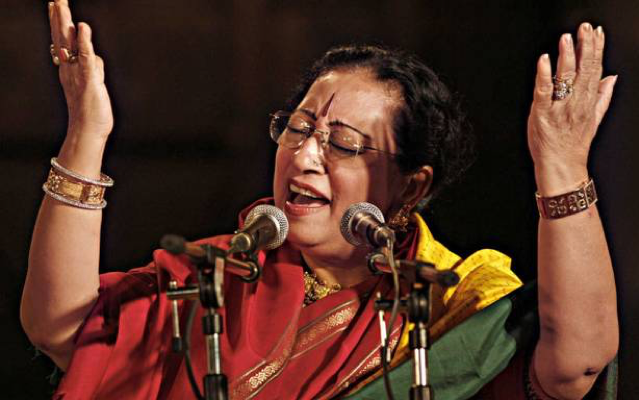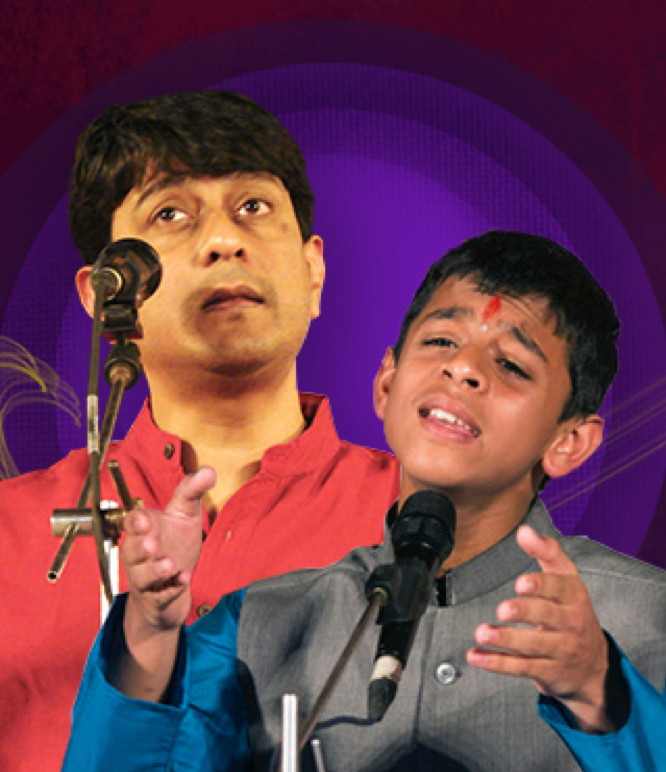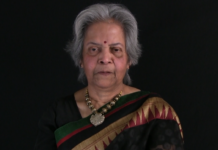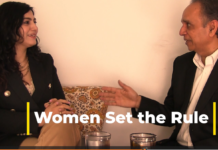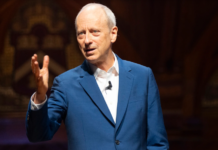by Pallavi Nagesha
“(This) music is a rare kind of prayer. It is created by the supreme entity so that we can get an understanding, a glimpse of that entity.” ~ Pt. Hariprasad Chaurasia
The earliest accounts of organized music are recorded in the Sāma Veda. Sāma Gāna was performed during a Yagña, invoking the Devas and inviting them to come into the human realm. This practice established a deep connection between spirituality and music.
sahasra-vartma sāmavēdaḥ
It is said that there are a thousand ways of singing Sāma. Songs meant to be sung in homes – praying to the Gods, during domestic functions and other social occasions. Such music is deemed contemplative; it is sacred, and for some, a spiritual pursuit that leads to liberation. Between March 29th and 31st, at the LearnQuest Music Conference, you may just hear all the ways music can elevate. Let us look at just one of those myriad ways, vocal music form Hindustani musicians. Our stellar lineup begins with Pooja Goswami Pavan, an artist based in Minnesota, performing on Friday, March 29th. Trained under the eminent vocalist Vidushi Shanti Hiranand, the reigning queen of Thumri and Ghazal, and successor of the legendary vocalist, Late Begum Akhtar, Pooja brings versatility to her music, which is informed by her deep devotion. Whether she is singing the Khayal, Thumri, Dadra, Ghazal, Bhajan or a variety of folk-inspired genres such as the Hori, Chaiti, Kajri and Sawani, Pooja’s innate love for the supreme shines through. She is accompanied by Suryaksha Deshpande on the Tabla. Suryaksha is a Grade A artist of All India Radio and Doordarshan and a recipient of the National Scholarship awarded by the Government of India. He is a versatile soloist and a skilled accompanist. Pooja is also accompanied by Sanatan Goswami on the Harmonium. Known as the “luminary in the stardom of musical galaxy of India” Sanatan is the choice accompanist of celebrated musicians like Pt. Jasraj, Pt. Rajan Misra, Pt. Sajan Misra, Girija Devi, Pt. Ajoy Chakraborty, and Ustad Rashid Khan, to name a few.
Saturday brings to us a veteran Hindustani musician, Sandip Ghosh, an outstanding vocal artist, scholar and teacher. He is also renowed for his Rabindra Sangeet performances. An acclaimed artist at All India Radio, Sandip has been performing within India and abroad for many years. He also conducts workshops in India and overseas. He is a disciple of legendary vocalist Pt. A. Kanan and will be accompanied by Abhijit Banerjee on the Tabla. A performer and composer, Abhijit is known for his sensitivity, skill and deep sense of musicality.
The cherry topping of the evening is, however, the legendary Begum Parween Sultana, the doyen of the Patiala gharana, although she is training in nine gharanas, her music flows as naturally and beautifully as breath. Parween Sultana is a true inspiration to women in performing arts. Apart from myriad accolades, she is the youngest artist conferred with a Padmashree in 1976. She was just 26 years old. Her music appeals to a range of Rasikas, from the uninitiated to the deeply involved. She is among the few artists who gracefully glides both the worlds of Classical and Bollywood music. However, she considers herself a classical musician and not a playback artist. Along with delicate expressions, and a dignified style of presentation, her performances are also marked by a robust Assamese accent. Epithets that surround her include “peerless powerful, versatile and melodious”. In this rare treat, she is accompanied by Pandit Mukundraj Deo on the Tabla. Pt. Deo is known as one of the finest young Tabla Players in India. He studied under Late Pt. Brijraj Mishra of Bananas Gharana. Parween Sultana is also accompanied by Shrinivas Acharya on the Harmonium.
On Sunday, you will see live legacies as the father-son duo of Shrinivas and Viraj Joshi take the stage. While building the strong heritage, both son and grandson of Legendary Pt. Bhimsen Joshi, bring their own unique voice. Shrinivas says that he did not choose music, but music chose him. It was a calling that came upon him as he took his mother’s place accompanying his father on his concerts. While continuing the traditional principles of the Kirana style, Shrinivas has developed an esoteric style and a highly original voice, often described as “the most authentic voice”. Viraj, a teenager shows such deep understanding and zeal for music.
The evening concludes with the ever-popular duo Umakant and Ramakant Gundecha, leading exponents of the Dhrupad style and prolific performers around the globe. They bring the classroom to the stage, as they make the audience understand the nuances of Dhrupad. They are widely credited with singlehandedly reviving this art form. Their performance is often a journey through the many nuances of the world of Dhrupad, taking the audience along for a grand adventure. They are accompanied on the Pakhawaj by Akhilesh Gundecha, making them a trio. Apart from accompanying his brothers, Akhilesh has extensively toured the US and has founded ‘Madhya Laya’, a north Indian taal vadhya kacheri, that has performed all over India and USA.
To hear this stellar line up of Hindustani vocalists and more, see us at the 14th Annual LearnQuest Music Conference, March 29th – 31st at Regis College, Weston MA. For more information visit our website at www.learnquest.org.



